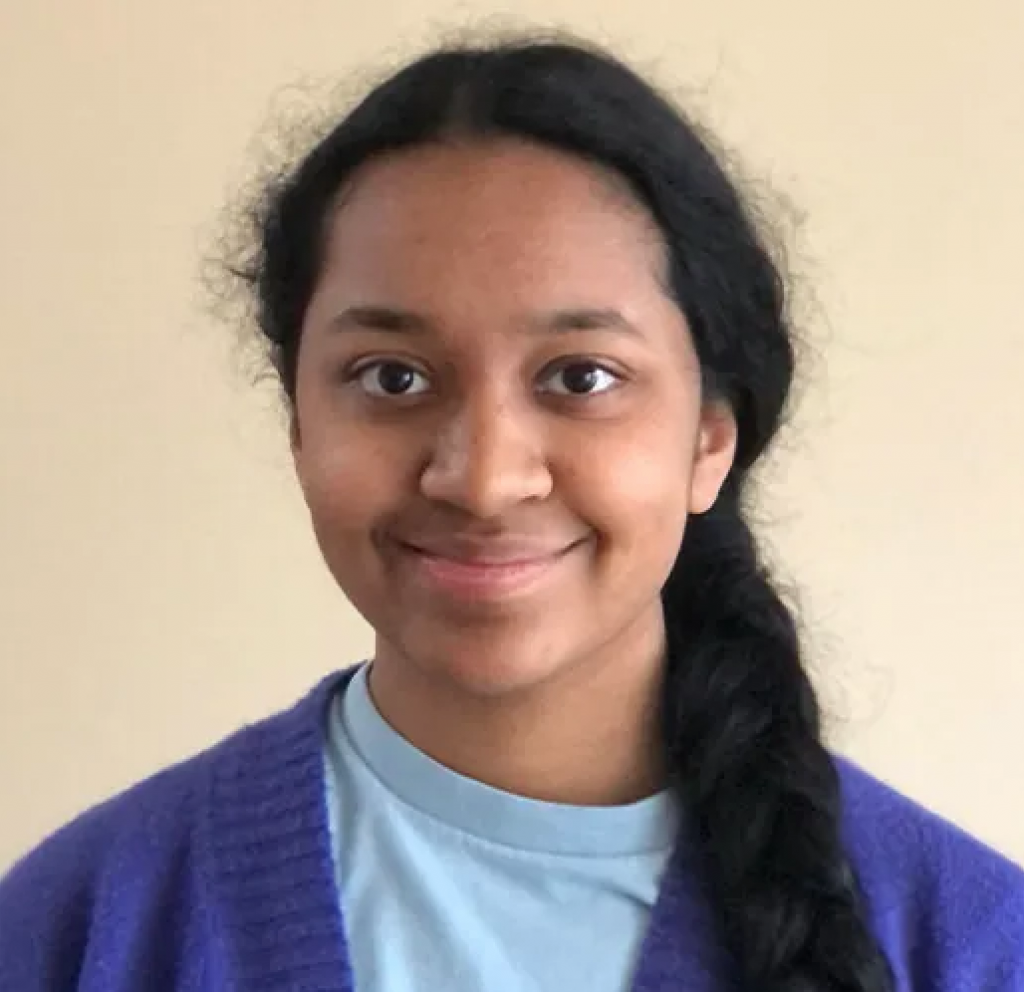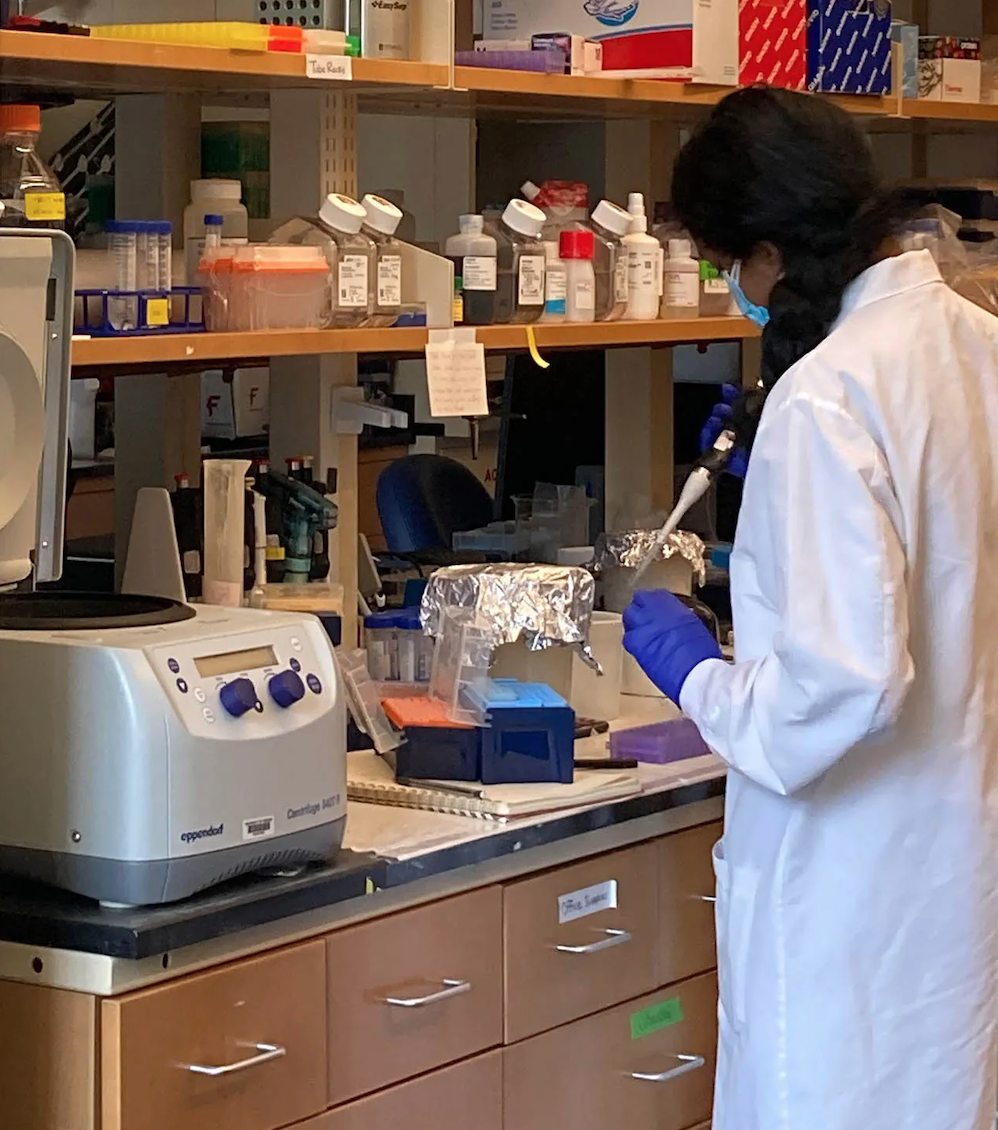Local high school student Vidya Ambati has potentially saved pharmaceutical researchers several years and billions of dollars in the fight against arthritis, and the breakthrough comes with at least one major side effect: a $50,000 college scholarship.
Ambati, along with 19 other gifted high school students nationwide, was named a 2024 Davidson Fellow in late August. The award’s administrator, the Davidson Institute, has given 448 students under 18 years old $50,000, $25,000, or $10,000 scholarships for groundbreaking research projects since 2001. This year, Ambati was among only four students to receive the top award.
“Vidya … her project was extraordinary,” says Tacie Moessner, Davidson Fellows Program director. “That’s not to say the students at the $10,000 or $25,000 level are less than, but the judges were really impressed with Vidya’s project. We have seen this level of work before, but they seem like they get better every year.”

Working with advisors from the University of Virginia, 17-year-old Ambati discovered that a drug traditionally used for mental health disorders can reduce the risk of developing two forms of arthritis. The researchers found that the drug, Haloperidol, suppresses both rheumatoid arthritis and gout by binding to a newly identified protein.
Ambati says more than 200 million people worldwide have the two forms of arthritis. The Albemarle High School senior says she was inspired to pursue the Haloperidol project in part because several of her own family members suffer from arthritis.
Since Ambati and her mentors made their breakthrough, UVA has filed four patents around the technology, and the researchers are planning clinical trials. “It’s exciting but challenging,” Ambati says.
In addition to her exemplary work in the lab, Ambati runs an international webinar intended to connect students with scientific leaders and inspire them to explore science. She is also a promising young painter and sculptor.
Ambati says she wants to continue studying science and pursue a career in biomedical research and/or health policy. Just starting her senior year of high school, she says she’s considering “several schools in the Northeast” for college but hasn’t made any decisions.
Drug repurposing has received heightened attention in recent years. While not a traditional form of repurposing, where a drug used to treat one malady is found to be effective for fighting another, the COVID-19 mRNA vaccine was built on pharmaceuticals originally developed to fight viruses like Zika and Nipah.
“Finding new drugs and using AI and machine learning to try to find new drugs and speed up that process is very top of mind with student researchers—and professional researchers,” Moessner says.
The Davidson Fellows Scholarship has provided about $9.9 million in funds over the years to students in science, technology, engineering, mathematics, literature, and music. Moessner says science and technology applicants are the most common.
According to Moessner, “the vast majority” of Davidson Fellows go on to graduate school, and many eventually earn doctoral degrees. The 2024 Fellows will be honored at a reception in Washington, D.C., in September.















